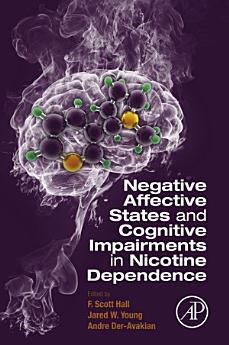Negative Affective States and Cognitive Impairments in Nicotine Dependence
इस ई-बुक के बारे में जानकारी
लेखक के बारे में
Dr. F. Scott Hall is an Assistant Professor of Pharmacology and Experimental Therapeutics in the College of Pharmacy and Pharmaceutical Sciences at the University of Toledo. Dr. Hall’s research investigates the genetic and environmental determinants of susceptibility to addiction and related psychiatric disorders. After a B.A. from Harvard University (1987) and a Ph.D. from the University of Cambridge in 1994, Dr. Hall completed a postdoctoral fellowship at the National Institute on Alcoholism and Alcohol Abuse. Dr. Hall joined the Molecular Neurobiology Branch at the National Institute on Drug Abuse in 1999 where he led the behavioral genetics group until 2014. He has authored over a hundred scientific publications and is a fellow of the International Behavioral Neuroscience Society. Dr. Hall is recognized internationally as an expert in the genetic basis of addiction and the role that early social experience plays in shaping adult behavior and behavioral pathology.
Andre Der-Avakian, Ph.D., is an Assistant Research Scientist in the Department of Psychiatry at University of California, San Diego and an Adjunct Instructor in the Department of Psychological Sciences at University of San Diego. He received his Ph.D. in Neuroscience from University of Colorado, Boulder and completed a National Institute of Mental Health-sponsored postdoctoral fellowship at University of California, San Diego. Dr. Der-Avakian has published several research articles, reviews, and book chapters on the neurobiology of stress-induced disruption of normal reward processing in rats that may contribute to symptoms like anhedonia and motivational deficits in psychiatric disorders. His research, which is funded by grants from the National Institute of Mental Health and the National Institute on Drug Abuse, is focused on designing and implementing new translational behavioral and neurophysiological assessments of reward and cognitive processes in rats with high relevance to human psychiatric disorders like depression, schizophrenia, and drug addiction.





